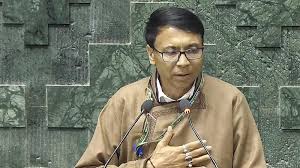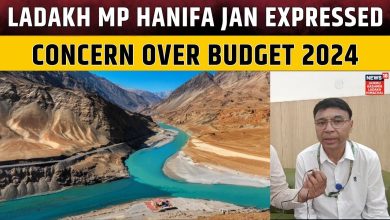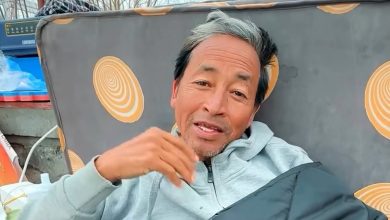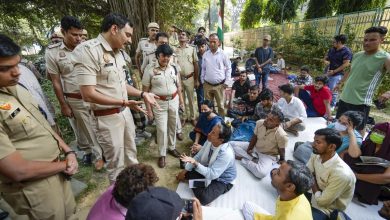Ladakh MP Mohammad Haneefa raises local demands in Indian parliament
 New Delhi: Mohammad Haneefa, the Member of Parliament from Ladakh region, Indian illegally occupied Jammu and Kashmir, has brought the local populations’ demands to the Indian parliament.
New Delhi: Mohammad Haneefa, the Member of Parliament from Ladakh region, Indian illegally occupied Jammu and Kashmir, has brought the local populations’ demands to the Indian parliament.
According to Kashmir Media Service, during the Zero Hour, Haneefa highlighted the key demands of the Leh Apex Body (LAB) and Kargil Democratic Alliance (KDA) —two groups representing the Buddhist-dominated Leh and Muslim-dominated Kargil. These groups, comprising various political, social, religious, and student organizations from their respective districts, have been advocating for indigenous rights related to land and employment for the past four years.
Haneefa emphasized that Ladakh is the largest Lok Sabha constituency and holds strategic importance, sharing borders with both China and Pakistan.
He noted that while Ladakh was designated a Union Territory in 2019, this decision faced opposition from half the population. Even those who supported the change wanted the Union Territory to have its own legislature, rather than the current administrative setup.
“In the last four years, people have been protesting over four demands,” he said.
Pertinently, the Indian government’s decision to administer Ladakh directly from New Delhi since August 2019 has raised concerns about the region’s democratic marginalization, lack of input in development projects, and increased militarization of the ecologically sensitive Himalayan region. Local leaders argue that the current bureaucratic setup has diminished their political representation and influence over development initiatives. Additionally, new laws allowing outsiders to settle and start businesses in Ladakh have alarmed residents.
The Leh and Kargil districts have united around four primary demands: inclusion under the Sixth Schedule of the Indian Constitution, statehood, job reservations for locals and a separate public service commission, and two Lok Sabha seats for the region. Representatives from LAB and KDA have staged numerous protests and held multiple meetings with New Delhi to address these issues. However, nine rounds of talks between New Delhi and Ladakh leaders have ended in deadlock, with the last meeting on March 4 yielding no substantial results.








